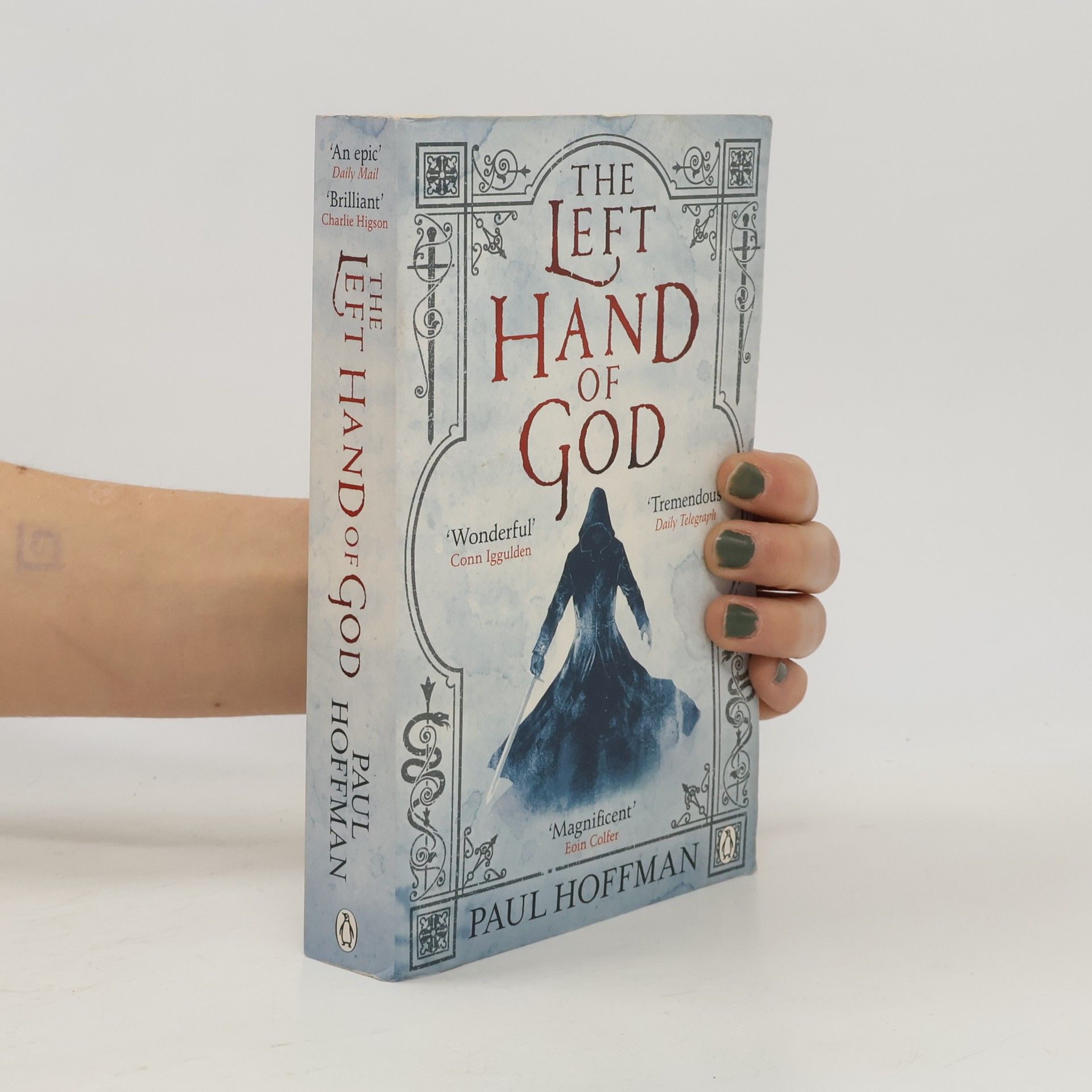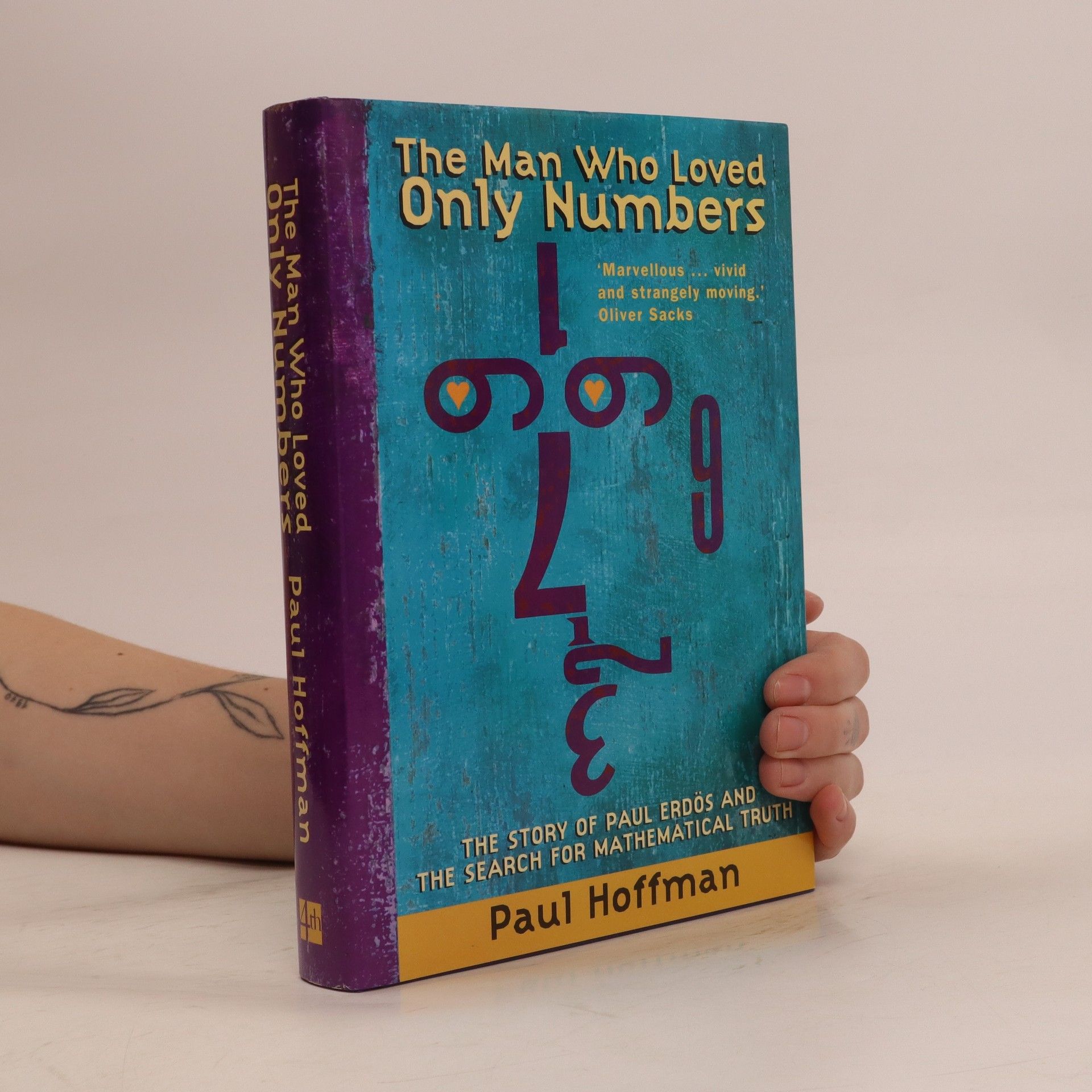The story of man's struggle to fly is full of larger than life personalities, but none was so eccentric, so entertaining or so complex as Alberto Santos-Dumont, the Brazilian 'father of aviation'. An engineer and dandy, Santos-Dumont was the darling of the international press in the first decade of the twentieth century, hopping from Parisian restaurant to nightclub in his personal flying machine, circling the Eiffel Tower in his balloon No. 6 or dining with the Rothschilds and Roosevelts. Yet Santos-Dumont was a troubled genius. Depressed by the success of the Wright brothers in Kitty Hawk and by the increasing militarisation of flight, he retreated to European sanatoriums throughout the 1920s, returning to Brazil only to be confronted by the horrors of civil war. Paul Hoffman tells the tale of Santos-Dumont and modern flight with wit and sympathy, showing us how often brilliance is coupled with tragedy.
Paul Hoffman Books
Paul Hoffman crafts narratives rich with imagination and profound insight, often exploring themes of foresight, societal structures, and the boundaries of expression. His work is imbued with dark humor and a sharp understanding of human nature, offering readers a singular perspective on the world. He masterfully weaves experiences from a diverse life into stories that are both provocative and compelling. His prose is incisive, marked by unexpected turns that leave a lasting impression.







The Man who Loved Only Numbers
- 301 pages
- 11 hours of reading
The biography of a mathematical genius. Paul Erdos was the most prolific pure mathematician in history and, arguably, the strangest too. 'A mathematical genius of the first order, Paul Erdos was totally obsessed with his subject -- he thought and wrote mathematics for nineteen hours a day until he died. He travelled constantly, living out of a plastic bag and had no interest in food, sex, companionship, art -- all that is usually indispensible to a human life. Paul Hoffman, in this marvellous biography, gives us a vivid and strangely moving portrait of this singular creature, one that brings out not only Erdos's genius and his oddness, but his warmth and sense of fun, the joyfulness of his strange life.' Oliver Sacks For six decades Erdos had no job, no hobbies, no wife, no home; he never learnt to cook, do laundry, drive a car and died a virgin. Instead he travelled the world with his mother in tow, arriving at the doorstep of esteemed mathematicians declaring 'My brain is open'. He travelled until his death at 83, racing across four continents to prove as many theorems as possible, fuelled by a diet of espresso and amphetamines. With more than 1,500 papers written or co-written,
Archimedes' revenge
- 285 pages
- 10 hours of reading
A collection of articles on the highways and byways of mathematics. The book is written in the tradition of Martin Gardner and aims to be both entertaining and fascinating.
The Left Hand of God
- 544 pages
- 20 hours of reading
The Sanctuary of the Redeemers is a desolate place - a place where hope & joy aren't welcome. Most of its occupants have been brought here as young boys, against any will they might have had. One boy watches the latest arrivals. He doesn't remember anything of his former life or know anything of his future. Meet the Angel of Death.
The beating of his wings
- 512 pages
- 18 hours of reading
In the final installment of the epic Cale and the Sanctuary of Redeemers series, Thomas Cale grapples with a harrowing truth: his brutal training was designed to annihilate humanity, deemed God's greatest mistake. Hunted by Pope Redeemer Bosco, the man who transformed him into the Angel of Death, Cale embodies a complex paradox—arrogant yet innocent, generous yet pitiless. Having already toppled a powerful civilization using his extraordinary destructive abilities, he now faces a personal crisis; his soul is deteriorating, and his body is failing him. As the day of reckoning approaches, Cale's thirst for vengeance drives him back to the Sanctuary, where he confronts his greatest enemy. He must come to terms with being the embodiment of divine wrath and make a pivotal choice: to oppose the Sanctuary of the Redeemers or unleash his devastating powers upon the world. The fate of humanity hinges on his decision. This conclusion to the trilogy promises a gripping blend of epic heroism and moral complexity, appealing to fans of heroic fiction. Paul Hoffman, acclaimed for his previous works, delivers a thrilling narrative that captivates from the first chapter to the last.
Returning to the Sanctuary of the Redeemers, Thomas Cale is told by the Lord Militant that the destruction of mankind is necessary; the only way to undo God's greatest mistake. Cale seemingly accepts his role in the ending of the world: fate has painted him as the Left Hand of God, the Angel of Death.
The White Devil
- 448 pages
- 16 hours of reading
THE GRIPPING NEW ADVENTURE FROM THE AUTHOR OF THE LEFT HAND OF GOD SERIES Welcome those of you from the Old World. Welcome to the New. Mankind's most reluctant hero - Thomas Cale - is back. ________ Thomas Cale has been running from his enemies. Believing him to be the incarnation of God's rage, the world's most violent religious sect trained him to destroy His greatest mistake. Mankind itself. But Cale has other ideas. Cale is a paradox: arrogant and innocent, generous and pitiless. Feared and revered by those that created him, he has already used his terrifying talent for violence and destruction to bring down the most powerful civilization in the world. But having fled to America, Thomas Cale has been caught. He has been given a choice. Murder the American president - the father of that fragile democracy and the the best hope for ending slavery - or be handed over for execution himself. The survival of rule by the people, and the right of millions not to be owned by others, rests on Cale's decision . . . ________ Praise for Paul Hoffman: 'Fiction on a grand and ambitious scale' Daily Telegraph 'Brooding and magnificent' Eoin Colfer 'Exhilaratingly engaging writing' Spectator 'Gripped me from the first chapter' Conn Iggulden 'A riveting, powerful tale' Publishers Weekly
Netscape & WWW für Dummies
- 360 pages
- 13 hours of reading
Ľavá ruka boha 1.-3.
- 3 volumes



